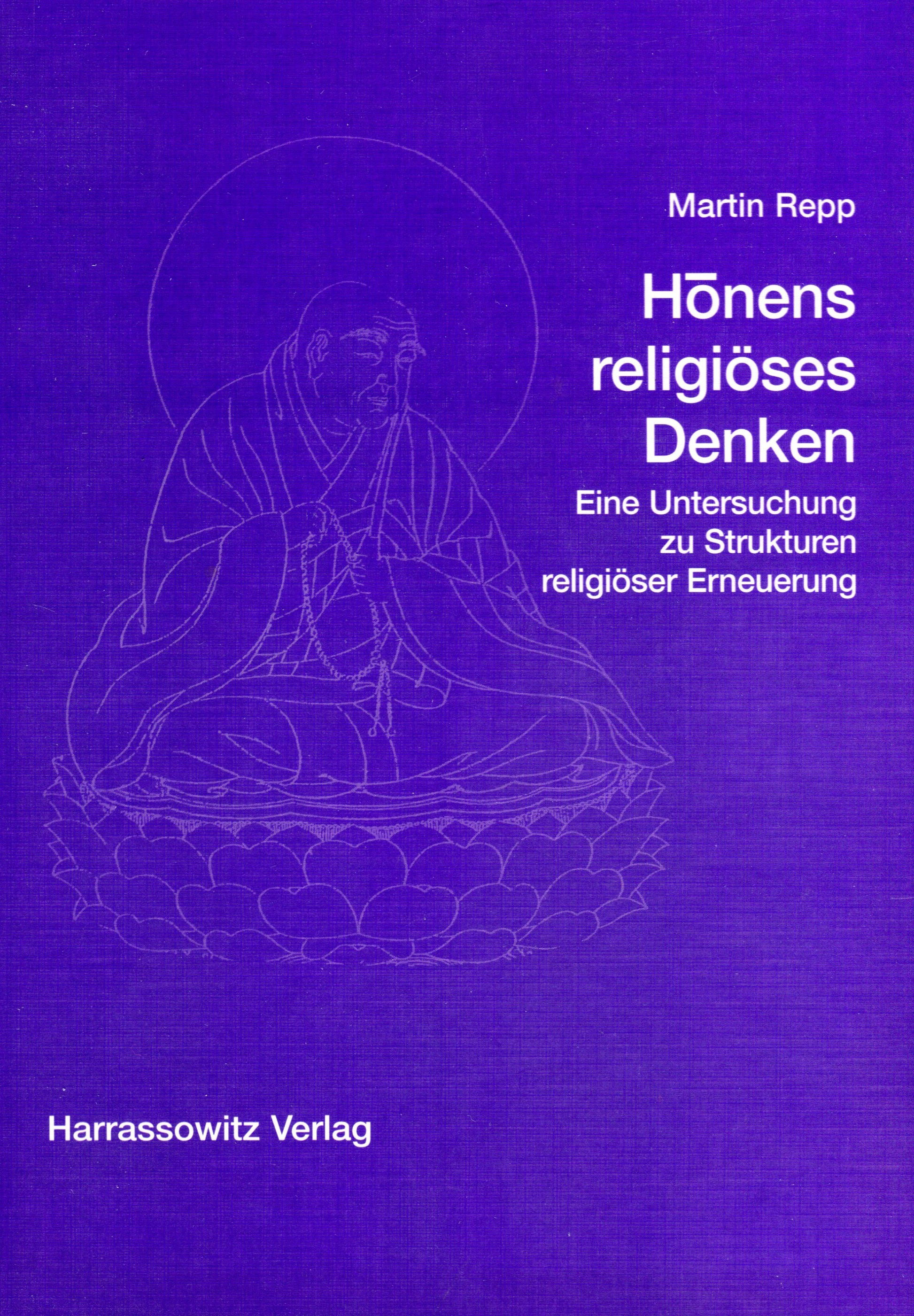 Hōnens religiöses Denken
Hōnens religiöses Denken
Eine Untersuchung zu Strukturen religiöser Erneuerung.
(The religious thinking of Hōnen – An inquiry into structures of religious innovations)
Dr. Martin Repp
This book investigates a major figure in Japanese Buddhism, who established the Pure Land teaching doctrinally as an independent, self-sufficient tradition, not institutionally as Pure Land Buddhist followers later taught. In Western treatises of Japanese Buddhism, Honen had been mostly obscured by publications about his student Shinran, from which Jodo shinshu derives. This study consists of four parts: First, the emergence and developments of Pure Land teachings and practice are traced from its fundamental Indian and Central Asian sutras, through Chinese developments to early receptions in Japan. They form an integral part of comprehensive teaching and practice systems of traditional Buddhism. Whereas here the Pure Land practice nianfo /nenbutsu meant to "keep Buddha in mind" and "recite his name" during contemplation, the second part of this study shows that Honen perceived it solely as a vocal calling of Buddhas name and as an "easy practice" for religious liberation from suffering available for all people. Since he found in his scriptural studies that only an "exclusive" recitation would certainly bring about "birth into the Pure Land" of Amida Buddha, he replaced the comprehensive and hierarchical systems of teaching and practice of traditional Buddhist "soteriology" through an exclusive, but an "easy" approach in "equality." The third part consists of a translation and explanation of Honen's main work Senchaku-shu. In the final section, a comparison between Honen's and Luther's religious reforms shows that they were not triggered mainly by contemporary "religious abuses" or "decadence", as the common opinion claims, but by the troubling experience of the gap between religious teachings and practice and the subsequent search for a "conformity" between both which would assure certain salvation.

